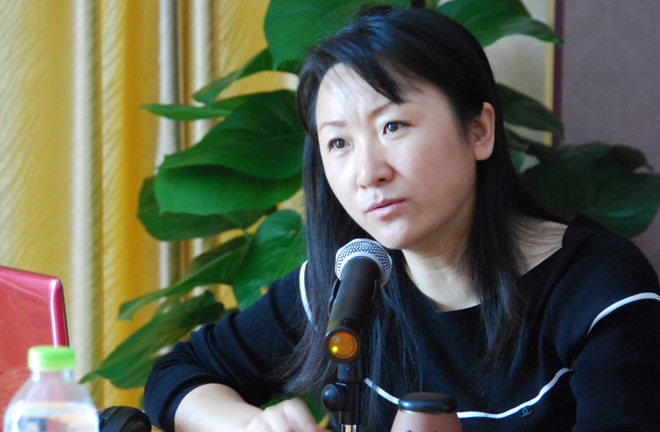WANG CAIPING: Agencies should respect journalists’ role as ‘ambassadors of information’
 Since the founding of New China, the Chinese government has used the media to publicize its policies, thus guiding public opinion. Officials at all levels have had no pressure dealing the relationship with the media.
Since the founding of New China, the Chinese government has used the media to publicize its policies, thus guiding public opinion. Officials at all levels have had no pressure dealing the relationship with the media.
However, the relationship between government and media became increasingly complicated after China initiated reform and opening up policies. Profit-making media have been established, and foreign journalists with press cards can freely interview the most part of China. Also, new media emerged. At this point, the government can no longer control the media through executive means.
There is a saying that people should be on guard against journalists just like keeping watch for fire and thieves mainly because journalists are considered “troublemakers” when breaking or sensitive events take place. Some local departments tend to evade media due to ever-changing circumstances and lack of authorization or cover up their incompetence by refusing to meet with reporters.
This form of misconception and misconduct prevents the public from hearing the truth, which goes against the public’s right to know and government transparency. In recent years, conditions have improved as agencies strive to release more information.
Journalists were dubbed the “uncrowned kings” in the 19th century. At that time, the Times was so spectacularly influential that its editors-in-chief often became members of the British cabinet after resignation. The popularity of the title “uncrowned king” has close relation to the role of journalists.
Media gradually dominated social discourse and became an undeniable social force thanks to advancements in printing technology, improved education as well as the wide availability of cheap paper. People, therefore, came to believe that journalists have “authority” or a form of special power to impact society, making the title “uncrowned king” to some extent acceptable.
However, some journalists overestimate themselves and are lost in the faulty assumption. In this way, role conflict is inevitable. Some journalists ignore objectivity and fairness by abusing their discourse power and turning it into a tool for news corruption. These forms of behaviors have greatly sabotaged the purity and principles of media.
Indeed, journalism is an occupation. They professionally interview and report for news agencies. Journalists have editorialized in many cases while performing their due tasks as information collectors and disseminators in the profit-making media market.
Journalists are ambassadors of information. They collect information and produce news by contacting officials, businessmen, celebrities and ordinary people. Journalism is a social division of labor, indicating that all the powers of reporters are not exclusive, and the public fundamentally shares the same ones, including the supervisory role by means related to news.
The arrival of the social media era has threatened the status of reporters and traditional media. Today, everyone is a journalist and has a platform. They release information and express opinions through various forms of social media.
But in regard to the principles of news communication, media and reporters are necessary and indispensable. People may scan entertainment news while having a greater need for precise and authoritative information as media has accumulated profound credibility and influence over its development process.
Transparency is the most important way for government agencies to handle media based on the understanding that reporters are ambassadors of information. Other choices like concealing and blocking messages or bribing and threatening journalists all deviate from the right path and may be greater mistakes.
Wang Caiping is from the Chinese Academy of Governance.
